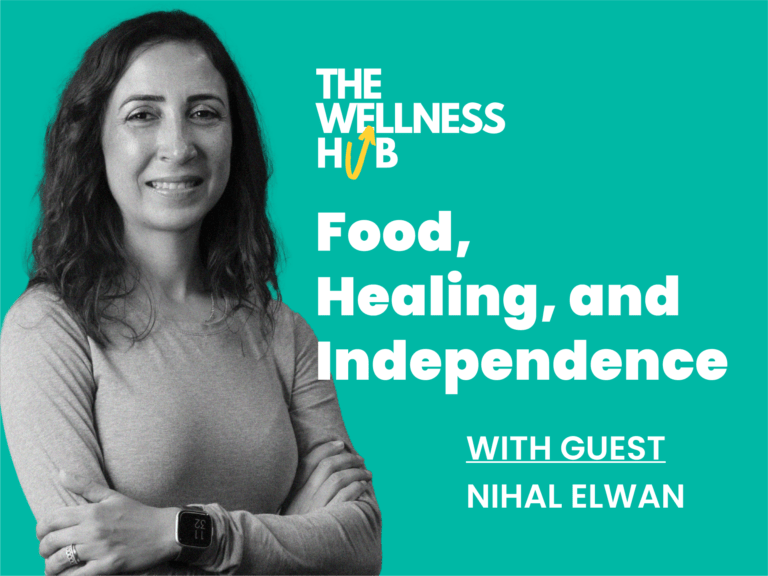To skip breakfast or not to skip breakfast? You’ve probably heard the term “intermittent fasting” thrown around in daily conversations. It is one of the latest big things in the world of nutrition and health. But what is intermittent fasting and is it a beneficial approach to a healthy lifestyle? If you’ve ever thought about starting a fast or are intrigued about the idea of strategically timing your meals, you’re in the right place. Let’s take a look into the benefits of intermittent fasting and some of the ways to approach this eating pattern.
What is intermittent fasting?
The concept of intermittent fasting (IF for short) comes from the idea that fasting for several hours a day (or even several days a week) can bring noticeable benefits to your overall health. Even though intermittent fasting is all the rage in modern diet approaches, it is by no means a new concept. Many traditions have practiced periods of fasting. Whether it is for spiritual observances or health reasons, fasting is anything but a new practice. In fact, our bodies have been programmed for periods of fasting even before religions and fitness concerns were ever on the radar.
Back in our hunter-gatherer days, humans had fluctuations in their access to food. There were days with good hunting catches and great abundance, and other not so lucky days where food was scarce. This forced our metabolisms to be efficient with the use of energy. As such, our bodies traditionally evolved to be highly efficient in nutrient absorption. On days in which food was abundant we are able to store energy to survive through scarce times. Intermittent fasting ultimately seeks to imitate the natural way we evolved before the times of supermarkets, takeout, and Uber Eats.
Is it healthy?
There are many proven benefits to intermittent fasting, and as it becomes more popular in healthy lifestyle trends, more studies are being conducted to understand the benefits of fasting patterns.
Many studies have shown promising results from proper intermittent fasting techniques. According to a Harvard Medical School publication, fasting is a natural part of our evolutionary physiology. It can trigger important biological processes leading to weight loss, improved metabolism, reduced inflammation, and blood sugar regulation.
Let’s break down some of the benefits:
- Supports weight loss efforts: By restricting the time window of when you take your meals, or taking entire fasting days your overall caloric intake will most likely be lower. When you consume fewer calories than you burn in your daily activities you set up your system for weight loss.
- Supports blood sugar regulation: Periods of fasting paired with a healthy diet can help regulate blood sugar levels. Healthy blood sugar regulation can reduce the risk of metabolic disorders such as hypoglycemia, hyperinsulinemia, and type 2 diabetes.
- Reduces widespread inflammation: By giving your system a break during fasting periods and allowing the body enough time to digest and clear toxins, your body becomes less prone to widespread inflammation from toxicity and undigested food. Systemic inflammation is one of the basic causes of multiple chronic diseases from autoimmune conditions to cancer. To learn more about how you can reduce inflammation check out or post on diet and chronic disease.
- Promotes ketosis: Fasting for periods of 12 or more hours can shift your body’s main means of energy from glucose to ketones. When your body exhausts most of the readily available energy from carbohydrates it switches to using stored fats. This process brings the body into a state known as ketosis. A moderate state of ketosis is linked to many health benefits including increased athletic performance, brain health, and reduced risk of metabolic disease. Check out our post on the keto diet to learn more about ketosis and how it can benefit the body.
Do’s and Don’ts of intermittent fasting

Although there are many benefits to fasting, I’d like to emphasize that a proper, healthy approach to IF is a very deliberate and thought-out practice. It is more than simply skipping breakfast or spending a full 24 hours without food. What you eat, when you eat it, and how you nourish your body during your eating windows is just as important as the actual fasting.
If you’re observing fasting periods followed by overconsumption of overly processed foods, refined carbs, and minimally nutritious foods you can be setting yourself up for failure and creating more harm than good.
If you are thinking of giving intermittent fasting a shot you should keep some basic health habits and tips in mind. Here are some tools to help you succeed and reap the benefits of intermittent fasting:
- Do: Nourish your body with whole, real foods including healthy fats, high-quality proteins, plenty of vegetables and hearty, fiber-rich carbohydrates.
- Do: Limit processed foods, added sugars, and products packed with additives and preservatives.
- Don’t: Break your fast with a sugar spike. Waiting until noon to have donuts and coffee for breakfast is not a proper IF method. The long fasting period paired with the sudden sugar bomb is a recipe for disaster. It can lead to an increased risk of blood sugar disorders, obesity, metabolic dysfunctions, and type 2 diabetes.
- Don’t: Have heavy meals at night. Avoid snacking or eating near your bedtime. Allowing at least 2 hours between your last meal and the time you hit the pillow allows your body to digest. This supports good quality sleep which is key to metabolic health and overall well-being. Late-night snacking has actually been linked to greater risk of obesity, type 2 diabetes, and heart disease.
Types of intermittent fasting
There are plenty of different theories and approaches to intermittent fasting from full-day fasts to eating windows during the day. Let’s take a look at some of the most common models:
16:8 fast: The 16:8 ratio refers to an eating schedule split where you fast for 16 hours and have an 8-hour eating window during the day. For example having your meals from 10:00am – 6:00pm and then fasting until the next day at 10:00am.
24 hour fast: This style of IF suggests having 24-hour fasts a few times a week. This generally entails having two days a week where you stop eating at dinner time and don’t have any meals until dinner on the next day.
5:2 fast: The 5:2 fast consists of having 2 non-consecutive days a week where you reduce your caloric intake significantly and eat normally on the other 5 days of the week. This gives the body a similar response with the scarcity of calories ingested without a total fast for the day.
Spontaneous meal skipping: This is a less structured approach that could bring some of the benefits of intermittent fasting if done correctly. Spontaneous meal skipping is exactly what it sounds like: you spontaneously skip meals when you’re not feeling hungry or are distracted by other occupations.
Which one is better?
There is really no option that is ultimately better than the rest. These all depend heavily on your lifestyle, preferences, and what is sustainable to your unique needs. Ultimately the benefits come from consistency. Finding a model or version that works best for you and that you can sustain is the best choice.
Is it good for everyone?

Generally, the effects of proper IF are safe for most people. However, like any other dietary approach, your unique needs and characteristics may differ. The best way to healthily approach an IF lifestyle is to work with a registered nutritionist or dietitian to find the best approach for you, and decide if it’s safe for your unique case.
While intermittent fasting provides great health benefits to most people, there are cases in which it may be contraindicated. Professional supervision is always recommended. Let’s take a look at a few of these special conditions:
- Underweight individuals: If you’re underweight or have a tendency of easily losing weight, intermittent fasting might not be the best choice for you. With the caloric restriction that normally comes with intermittent fasting, you may find yourself losing more weight than ideal. The risks of being underweight will quickly overpower the benefits that intermittent fasting can provide to other individuals. Proceed with caution and seek the support of a professional if you’re in this category.
- Pregnancy: If you are pregnant or breastfeeding, intermittent fasting is probably not the best call during this time. During pregnancy, you need proper caloric intake to promote your child’s healthy development. Both pregnancy and breastfeeding require significantly more energy, so IF might leave you depleted.
- Present history of eating disorders: For those who have or do struggle with eating disorders, restrictive eating patterns can be a major trigger.
The contents of this article are purely informational and do not intend to diagnose or treat any conditions. Please always check with a healthcare provider before diving into a new diet or lifestyle.
Further reading and resources:
https://www.annualreviews.org/doi/full/10.1146/annurev-nutr-071816-064634
https://academic.oup.com/ajcn/article/105/6/1351/4668664?login=true
https://www.nejm.org/doi/full/10.1056/NEJMra1905136





